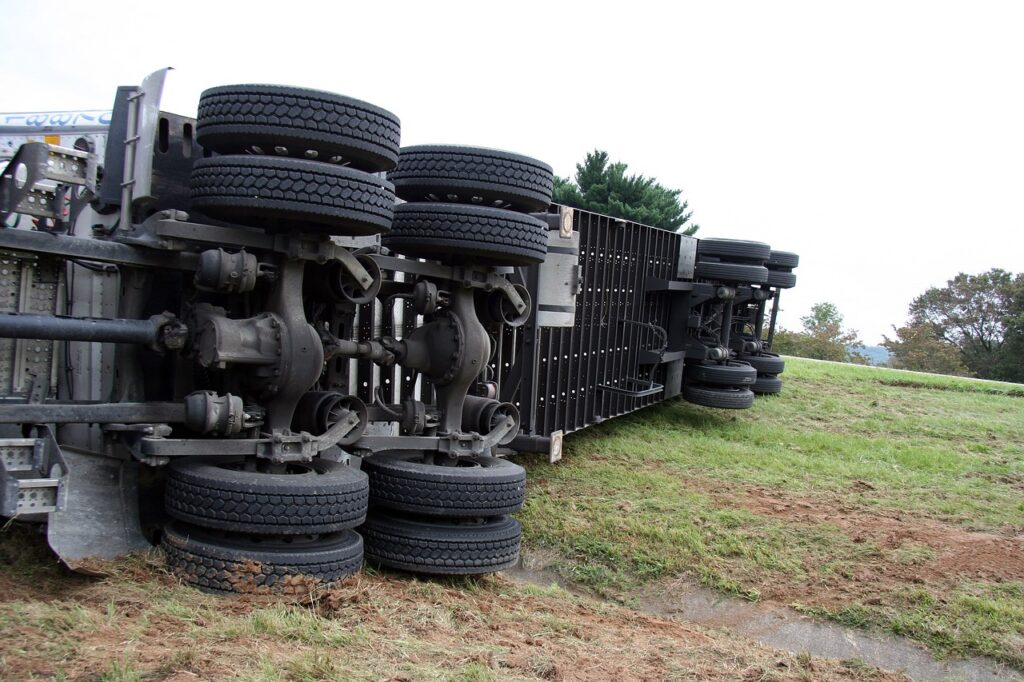Truck accident law in the United Kingdom is primarily governed by a combination of common law principles, statutory regulations, and specific legal procedures. If you’re involved in or affected by a truck accident in the UK, it’s important to understand the key aspects of truck accident law:
- Liability and Fault:
- Determining liability is crucial in truck accident cases. Liability may rest with the truck driver, the trucking company, or other parties depending on the specific circumstances.
- Evidence such as eyewitness testimonies, accident reports, and expert opinions may be used to establish fault.
- Negligence:
- Truck accident cases often involve claims of negligence. Negligence occurs when a party fails to exercise reasonable care, leading to injury or damage.
- To prove negligence, you typically need to show that the truck driver or another party owed a duty of care, breached that duty, and caused harm as a result.
- Statutory Regulations:
- The operation of trucks on UK roads is subject to various statutory regulations, including the Road Traffic Act 1988 and the Goods Vehicles (Licensing of Operators) Act 1995.
- These regulations cover aspects like driver licensing, vehicle maintenance, weight limits, and safety standards.
- Compensation:
- Victims of truck accidents may be entitled to compensation for their injuries, property damage, and other losses. Compensation can include medical expenses, lost wages, pain and suffering, and more.
- Insurance coverage is often a significant factor in determining the availability of compensation.
- Reporting and Investigation:
- Truck accidents in the UK should be reported to the police if there are injuries, fatalities, or damage to property. A formal accident report is typically generated.
- The police and other relevant authorities may conduct investigations to determine the cause of the accident and any legal violations.
- Legal Process:
- If you’re pursuing a claim after a truck accident, you may need to file a personal injury lawsuit or negotiate with insurance companies.
- Consult with a solicitor who specializes in personal injury law for guidance on the legal process, potential compensation, and your rights.
- Time Limits:
- There are time limits, known as the “limitation period,” for filing personal injury claims in the UK. Generally, you have three years from the date of the accident or the date you became aware of your injury to file a claim.
- Insurance:
- Trucks operating in the UK must have valid insurance coverage. Insurance companies often handle claims on behalf of their policyholders.
- Expert Witnesses:
- Expert witnesses, such as accident reconstruction specialists or medical professionals, may be called upon to provide testimony and evidence in court to support your case.
It’s essential to seek legal advice from an experienced personal injury solicitor who can guide you through the process, help you understand your rights, and represent your interests in a truck accident case in the UK. Laws and regulations may change over time, so it’s also crucial to stay updated on any legal developments that may affect your case.
Truck accident insurance law
Truck accident insurance law can be complex and varies from jurisdiction to jurisdiction. It typically involves a combination of federal and state regulations, as well as insurance policies specific to the trucking industry. Here are some key points to consider when it comes to truck accident insurance law:
- Commercial Truck Insurance Requirements: Commercial trucks, including tractor-trailers, must carry insurance coverage that is typically much higher than that required for personal vehicles. Federal regulations set minimum insurance requirements for interstate trucking, and these requirements may vary based on factors like the type of cargo being transported and the size of the truck.
- Primary Liability Insurance: Primary liability insurance covers bodily injury and property damage that the truck driver may cause while operating the vehicle. It is typically mandatory and is meant to cover damages to other parties involved in an accident.
- Cargo Insurance: This type of insurance covers damage or loss of the cargo being transported. Cargo insurance is usually required by shippers and may also be mandated by federal or state regulations.
- Excess Liability Insurance: In addition to primary liability insurance, trucking companies often carry excess liability insurance to provide additional coverage in case the primary policy limits are exceeded.
- Uninsured/Underinsured Motorist Coverage: Trucking companies may also be required to carry uninsured and underinsured motorist coverage to protect their drivers in case they are involved in an accident with a motorist who lacks sufficient insurance.
- Workers’ Compensation Insurance: Trucking companies are generally required to have workers’ compensation insurance to cover medical expenses and lost wages for employees injured on the job.
- Federal Motor Carrier Safety Administration (FMCSA) Regulations: The FMCSA regulates the trucking industry in the United States and sets various safety and insurance requirements for interstate trucking operations.
- State-Specific Regulations: In addition to federal regulations, individual states may have their own requirements for truck insurance, including minimum coverage limits and specific filing requirements.
- Accident Reporting: In the event of a truck accident, the trucking company is usually required to report the accident to their insurance provider promptly. Failure to do so can result in coverage disputes.
- Claims and Settlements: When a truck accident occurs, insurance companies may become involved in the claims process. They will investigate the accident, assess liability, and negotiate settlements with affected parties.
- Lawsuits: In cases where the insurance settlement is insufficient to cover the damages or liability is disputed, legal action may be taken. Truck accident lawsuits can be complex, involving multiple parties and potentially significant damages.
It’s crucial to consult with an attorney who specializes in truck accident law if you are involved in a truck accident or if you are a trucking company owner. They can help you navigate the specific insurance laws and regulations applicable to your situation, whether you are a victim seeking compensation or a trucking company looking to protect your interests. Additionally, insurance requirements and regulations can change over time, so it’s essential to stay informed about the latest developments in truck accident insurance law.


